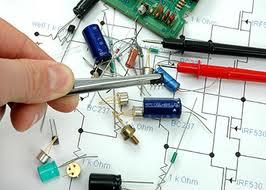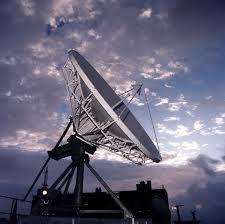Audience
This report is meant for my fellow consultants working with Career Consultants Incorporated, who will be joining me as me be acting as career advisors in my career field of specialization. The report has been requested by my boss Geraldine Schliemacher who will present it to them.
Purpose of the report
The main aim of the report is to enable the career consultants who will be acting as career advisors to be able to understand my career field and in the process, they will be able to know the occupational outlook of the different graduates all over the world in my career field.
Career to be researched
The career to focus this research on is Electrical and Electronics Engineering.
Resources
The consultants will be able to learn more about this course by visiting:
- Institute of Electrical and Electronics Engineers’ website at which is a professional body that regulates and supervises the work of engineers all over the world.
- National Society of Professional Engineers website which provides details of how the practicing engineering in the real world with their day to day activities.
The course is offered as a Bachelor of Science degree or a bachelor of engineering degree in Electrical and Electronics engineering. The consultants can visit the:
- Massachusetts Institute of Technology.
- Stanford University.
Basic Information
Electrical and electronics engineering is a career that deals with the study and applications of electricity and how it is influenced by electromagnetism (Ryder & Fink, 2006). The electrical part deals with the study of heavy electrical machinery that uses heavy current such as power transmission while electronics deal with the study of light currents such as in small electric components or devices like computers and integrated circuits.

Electrical and electronics engineering has different options where one can further specialize in telecommunications, control, power, and computer systems (Tunbridge & Lord, 2001).


Education Requirements
For one to be able to follow this career path as an electrical engineer, they need to have a minimum of if an electrical engineering degree from any university that is recognized by the commission for higher education (Weber & Nebeker, 2004). Other qualifications such as Cisco certified network associate, master’s degree, project management, and Cisco certified network profession are added advantages that may give a cutting edge among their peers.
Occupational Information
This career majorly entails designing a new system that is power efficient as well as faster. Such a system may be; a power transmission line, network systems especially for telecommunication system option, maintaining and servicing industrial control systems, and finally coming up with new programs and software that address current emerging issues especially for the computer system option. The career can also involve the supervision of graduate trainees, more so if the concerned engineer has been working in the organization for a long time, they may be needed to mentor new and young employees (Dorf, 2005).
Personality types
To be able to make a good engineer, a graduate must have a positive attitude towards their job. They should be able to easily adapt to their environment by being flexible. Reliability is also another important trait a person should possess as it ensures that can meet deadlines and thus meeting the customer demands. This makes them dependable. A graduate should also exhibit the willingness to learn and to be taught. This ensures they easily grasp concepts that they may not be familiar with or may not have been taught during their time in university (Blockley, 2012).
Placement Opportunities
There are so many opportunities that can be filled with graduates in this field both in the private sector and in the public sector. These graduates can work as network engineers in telecommunications firms, power engineering in the electric power transmission station, the chief and assistant engineers in the government as well as work as consultants in their private firms (Undeland & Robbins, 2003).
References
Blockley, D. (2012). Engineering: a very short introduction. New York, NY: Oxford University Press.
Dorf, R. (2005). The Engineering Handbook. Boca Raton, Florida: CRC.
Ryder, J., & Fink, D. (2006). Engineers and Electrons. New York, NY: IEEE Press.
Tunbridge, P., & Lord, K. (2001). His Influence on Electrical Measurements and Units. London, UK: The Institution of Engineering and Technology.
Undeland, N., & Robbins, W. (2003). Power Electronics: Converters, Applications, and Design. New York, NY: John Wiley & Sons, Inc.
Weber, E., & Nebeker, F. (2004). The Evolution of Electrical Engineering: A Personal Perspective. New York, NY: IEEE Press.